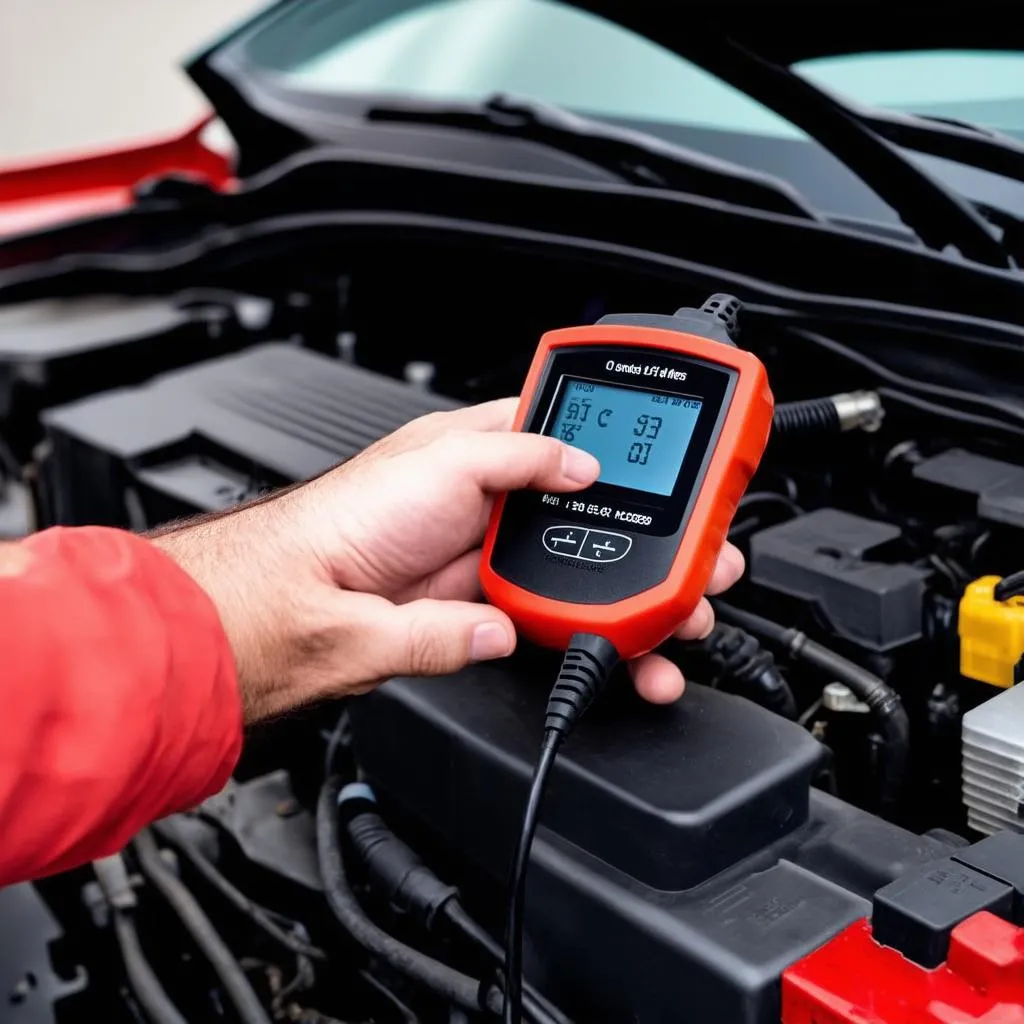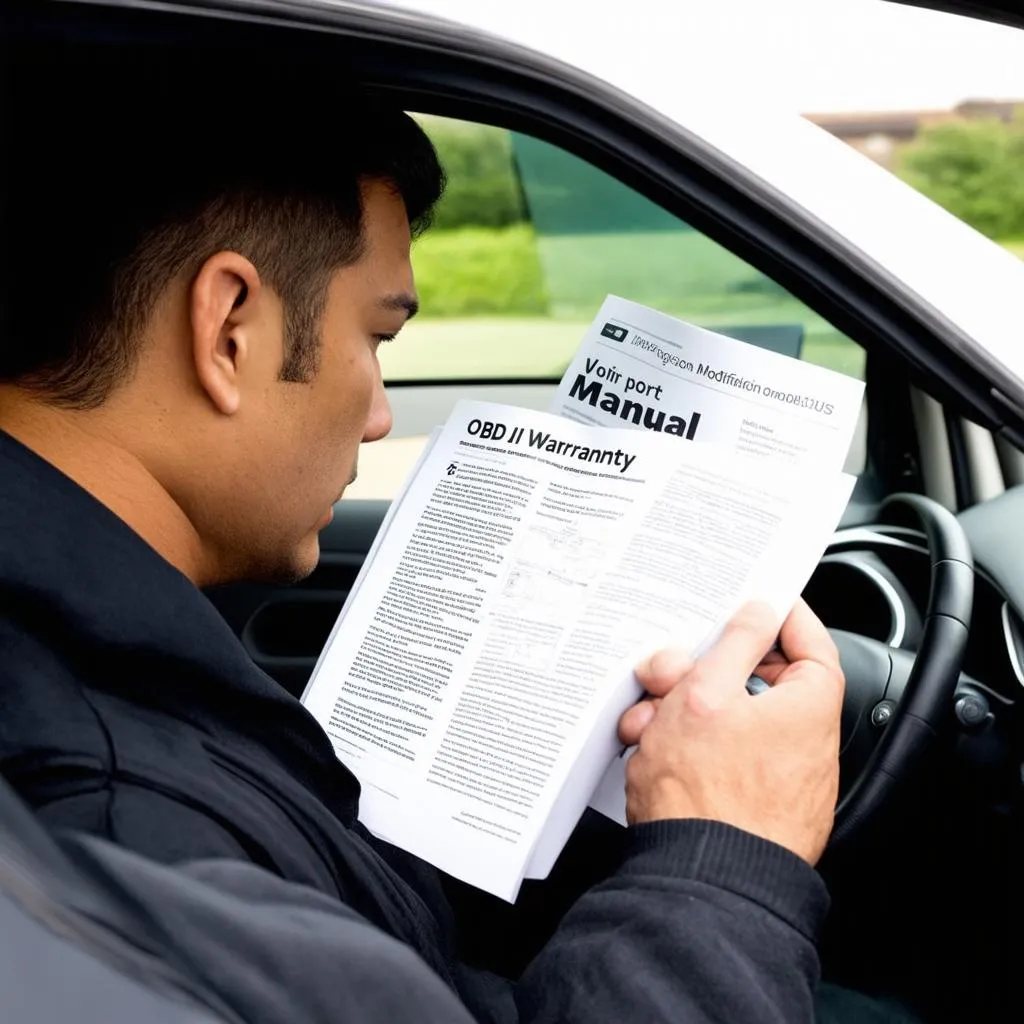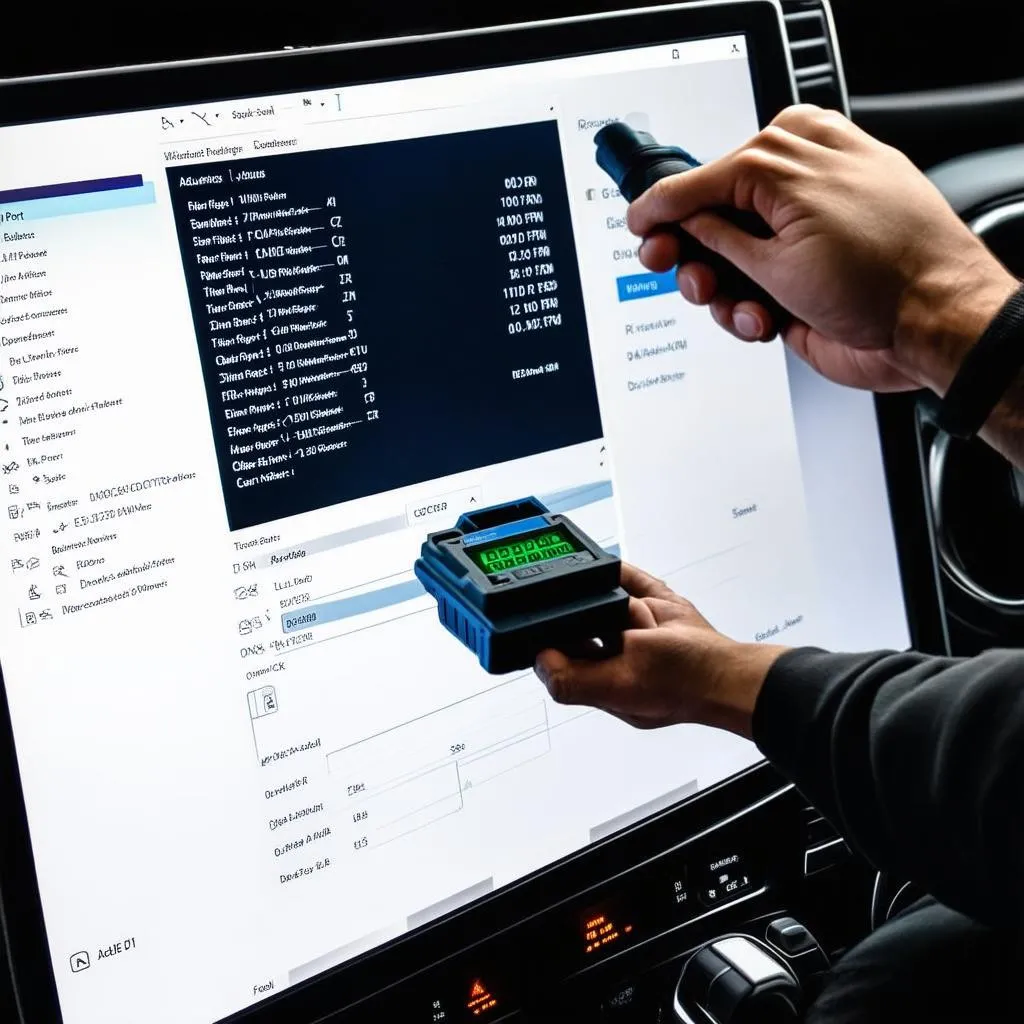“You can’t fix what you don’t know.” – This common saying perfectly reflects the importance of diagnosing issues in your car. That’s where the OBD II port comes in handy. It’s like a gateway to your car’s brain, allowing you to get valuable information about its health. But a question often arises: Does using the OBD II port void your car warranty?
Understanding the Question: Is Warranty Void If You Use Obd Ii Port?
Let’s break down the meaning of this question. It’s essentially asking if using the OBD II port for diagnostics or modifications will affect the validity of your car warranty. This concern stems from the fear that using third-party tools or software might cause damage to the car, leading to warranty denial.
From a mechanic’s perspective: The OBD II port is a standard diagnostic tool for every mechanic. It’s like a doctor using a stethoscope to listen to your heart. Using the OBD II port doesn’t inherently damage your car. However, the real concern lies in how it’s used.
From a financial perspective: Car manufacturers are businesses. They want to protect their profits and potentially minimize warranty claims. They might be apprehensive about third-party interventions that could potentially lead to issues that they might be obligated to fix.
From a technical perspective: The OBD II port is designed to be used by both technicians and car owners. It’s a standard interface that allows access to the car’s electronic control units (ECUs).
The Answer: Is Using the OBD II Port Void Your Warranty?
It depends. This is not a straightforward yes or no answer. Here’s a detailed explanation:
Warranty and the OBD II Port:
- Official Statements: Most car manufacturers clearly state in their warranty manuals that using the OBD II port for diagnostics is not a cause for voiding the warranty. They recognize the importance of troubleshooting and encourage drivers to access this information.
- Third-Party Modifications: However, if you use the OBD II port to modify or reprogram your car’s ECU (Engine Control Unit) using third-party software or tools, it’s a different story. The manufacturers might void your warranty if a problem arises due to these modifications.
- Case-by-Case Basis: The key takeaway is that using the OBD II port for diagnostics is generally acceptable, but using it for modifications can potentially void your warranty. The outcome can depend on the specific circumstances and how you use the port.
Case Studies:
- John’s Case: John’s car was experiencing some strange engine hiccups. He plugged a basic OBD II scanner into the port to see if he could pinpoint the problem. The scanner revealed a faulty oxygen sensor. John replaced the sensor, and the problem was solved. His warranty was not affected because he only used the OBD II port for diagnostics.
- Sarah’s Case: Sarah wanted to enhance her car’s performance. She used a third-party software tool connected to the OBD II port to reprogram her car’s ECU. After the modification, she experienced problems with the engine’s performance. Sarah’s warranty was voided by the manufacturer because they determined the issue stemmed from the modification, not a pre-existing defect.
What About Tune-ups and Engine Diagnostics?
- Engine Tune-ups: Using the OBD II port for routine maintenance like engine tune-ups, cleaning sensors, or checking emissions is generally not considered a warranty-voiding modification.
- Engine Diagnostics: Using a dealer scanner like the [insert name of dealer scanner here] can help technicians diagnose complex problems, identify potential issues early on, and fix them quickly. This can actually prevent more severe issues from developing, potentially extending the life of your car.
Key Takeaways:
- Using the OBD II port for basic diagnostics is generally safe and encouraged.
- Modify your car’s ECU using third-party tools at your own risk. It could potentially void your warranty.
- Consult your car’s warranty manual for specific guidelines.
- If you’re unsure about something, seek expert advice from a certified mechanic.
Tips for Safe and Warranty-Friendly OBD II Use:
- Choose Reputable Tools: Use OBD II scanners from trusted brands like [insert name of brand here].
- Don’t Modify Your ECU: Unless you have in-depth technical knowledge and are confident in your skills, avoid modifying your car’s ECU.
- Seek Professional Help: For more complex diagnostics or modifications, consult a certified mechanic or authorized dealership.
Related Questions:
- What are the benefits of using an OBD II scanner?
- What is the difference between a generic OBD II scanner and a dealer scanner?
- How can I find a certified mechanic in my area?
Related Products:
- [insert name of OBD II scanner here]
- [insert name of dealer scanner here]
- [insert name of software for OBD II here]
Supported Car Makes:
- [insert list of car makes supported by the dealer scanner here]
Additional Resources:
- [insert link to related article on techcarusa.com here]
- [insert link to related article on techcarusa.com here]
Call to Action:
Need help setting up a diagnostics tool or have questions about your car? Don’t hesitate to reach out! Contact us via WhatsApp at +84767531508 for expert support 24/7.
Conclusion:
The OBD II port is a valuable tool for car owners and mechanics alike. While it’s generally safe to use for diagnostics, remember that modifications can have serious consequences. Always consult your warranty manual, seek professional advice, and use reputable tools. Don’t let fear keep you from accessing this crucial information about your car’s health.
Let us know your thoughts in the comments below! What are your experiences with using the OBD II port?
 Using OBD II Port for Diagnosis
Using OBD II Port for Diagnosis
 OBD II Port and Car Warranty
OBD II Port and Car Warranty
 Modifying Car ECU
Modifying Car ECU